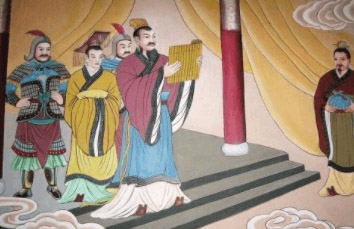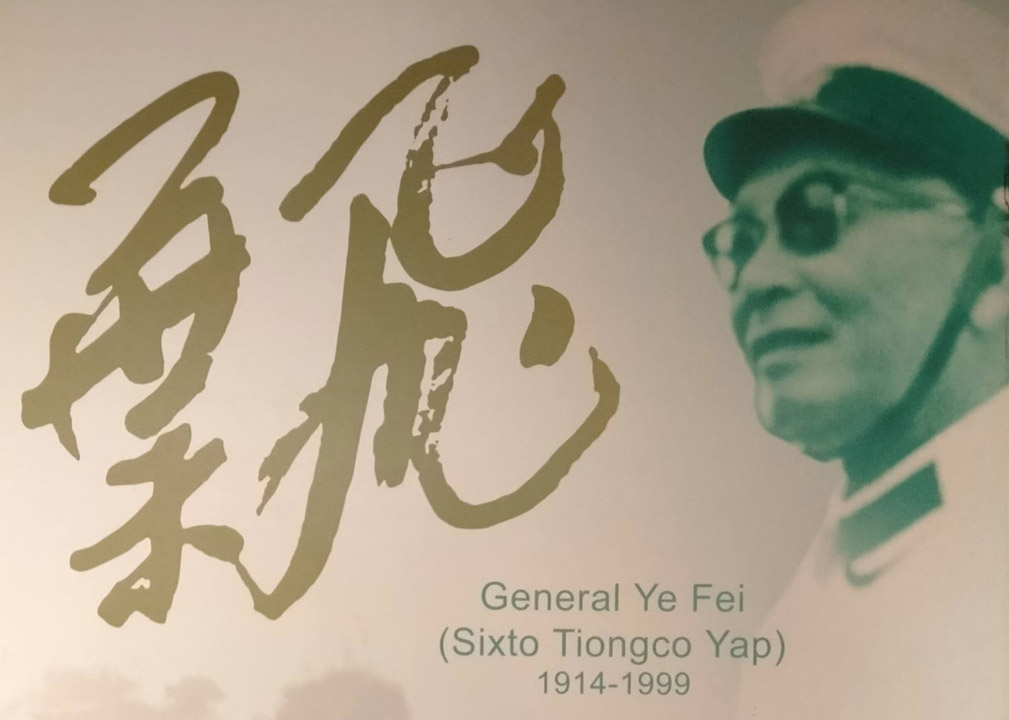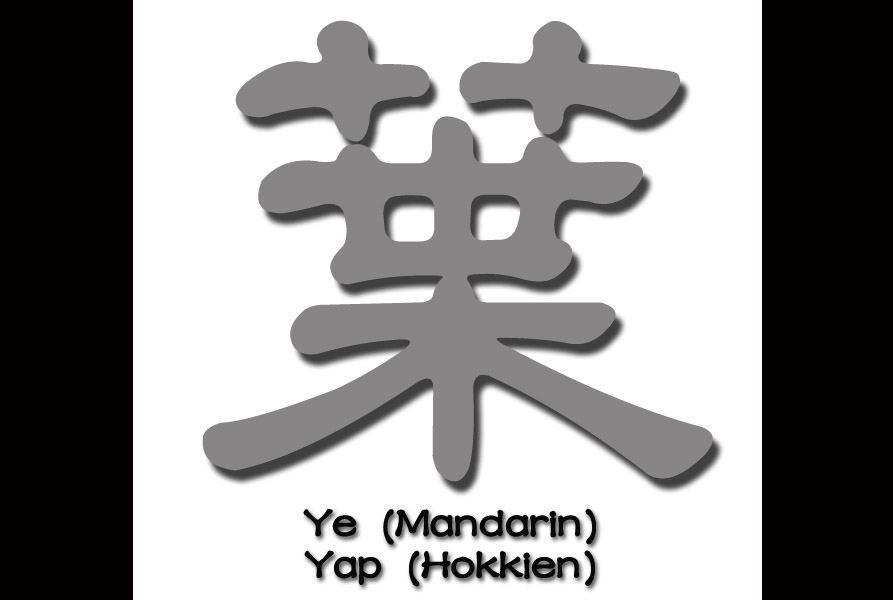First published in Tulay Fortnightly, Chinese-Filipino Digest 23, no. 22 (April 19-May 9, 2011): 5.
The surname 葉 (Ye in Mandarin, Yap in Hokkien), ranks 42nd among surnames in China and 16th in the Philippines. This is deceiving because there are actually more of the clan members than meets the eye.
The surname’s origin underwent two changes. The origin of Ye in China was a famous high-ranking official of State Chu (楚) by the name of Shen Zhu Liang (沈諸梁). So, Ye actually originated from surname Shen (沈, Sim in Hokkien which ranks 49th among surnames in China).

Shen Zhu Liang was born in 528 B.C., son of the famous general of State Chu, Shen Yi Shu (沈尹戍). He was conferred with the territory at Ye Yi (葉邑) county in Henan (河南) province.
He was kind and helpful to his people, enjoyed high prestige and commanded universal respect. In fact, he met Confucius and discussed politics with him in 489 B.C. He was respectfully addressed as Ye Gong (葉公), which means “the revered Mr. Ye.” Since then, all his heirs use Ye as their surname and a new surname in China appeared.
But if we trace further, Shen Zhu Liang’s father, Shen Yi Shu, was actually the 18th generation grandson of the 10th son of Emperor Zhou Wen Wang (周文王) of Zhou (周) Dynasty (1134 – 256 B.C.), by the name of Ji Dan Ji (姬聃季). So the surname Ye is also descended from Ji of the Zhou royal family.
Among famous Tsinoys with the Yap surname are Don Emilio Yap, owner of the Manila Bulletin, Manila Hotel and Philtrust Bank, and popular television host Jullie Yap Daza.

Another Yap worth mentioning is General Ye Fei (葉飛) or Yap Hui in Hokkien. A Chinese mestizo from Tiaong, Quezon, his Filipino name was Sixto Tiongco Yap. He was born in 1914. At five years old, he was brought to China for his education; then joined the Chinese revolution during his high school years. He eventually became a leading general in the Chinese revolutionary army. He eventually became vice chairman of the National People’s Congress.
Other high positions he held in government were Minister of Transportation, Commander of the Chinese Navy, and governor of Fujian province.
After 70 years in China, he returned to the Philippines in January 1989, visited his hometown in Tiaong and paid respect to his parents’ tomb, and had a reunion with his Filipino brothers and sisters. He passed away in 1999 at the age of 85.
